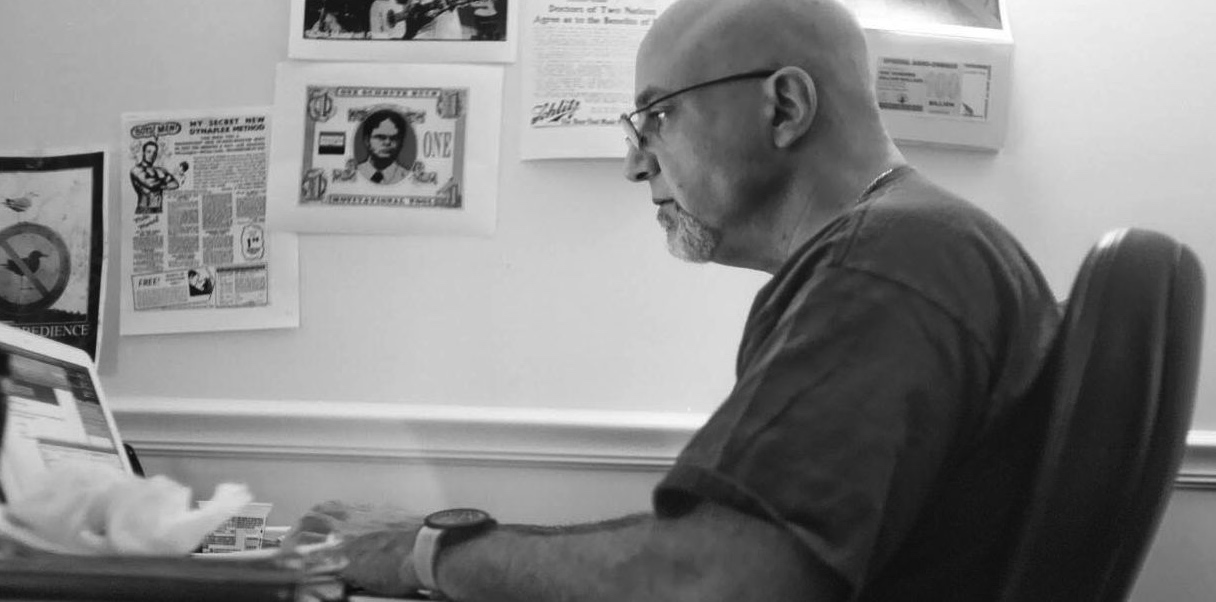Atlas Shrugged – Day 029 – pp. 284-293
They’ve stumbled into what happens when industry fails. What happens when the businesses that provide people their livelihood close their doors.
“Through the open door, they could see the interior of her house. There was useless gas stove, its oven stuffed with rage, serving as a chest of drawers. There was a stove built of stones in a corner, with a few logs burning under an old kettle, and long streaks of soot rising up the wall. A white object lay propped against the legs of a table. It was a porcelain washbowl, torn from the wall of some bathroom, filled with wilted cabbages . . . A brood of ragged children had gathered at the door behind the woman, silently, one by one.”
A man comes up carrying water from the local well.
Rearden took out a ten-dollar bill and extended it to him asking “Would you please tell us the way to the factory?”
The man stared at the money with sullen indifference, not moving not lifting a hand for it, still clutching the two buckets.
“We dont’ need no money around here,” he said.
“Don’t you work for a living?”
“Yeah.”
“Well what do you use for money?”
“We don’t use no money,” he said. “We just trade things amongst us.”
“How do you trade with people from other towns?”
“We don’t go to no other towns.”
“You don’t seem to have it easy here.”
“What’s that to you?”
“Nothing. Just curiosity. Why do you people stay here?”
“My old man used to have a grocery store there. Only the factory closed.”
“Why didn’t you move?”
“Where to?”
“Anywhere”
“What for?”
Abject poverty — of the pocketbook and the spirit. . .
“Listen,” said Rearden, “can you tell us whether there’s a road to the factory?”
“There’s plenty of roads.”
“Is there one that a car can take?”
“I guess so.”
“Which one?”
The man weighed the problem for some moments. “Well now, if you turn to the left by the schoolhouse,” he said “and go on til you come to the crooked oak, theres a road up there that’s fine when it don’t rain for a couple of weeks.”
“When did it rain last?”
“Yesterday.” (rim shot! – poor of spirit maybe, but the ball bustin’ is on.)
“Is there another road?”
“Well you could got through Hanson’s pasture and across the woods and then theres a good solid road there, all the way down to the creek.”
“Is there a bridge across the creek?”
“No.” (twenty questions. . . )
“What are the other roads?”
“Well, if it’s a car road that you want, there’s one the other side of Miller’s patch, it’s paved, it’s the best road for a car, you just turn to the right by the schoolhouse and –”
“But that road doesn’t go to the factory.”
“No, not the factory.”
“All right,” said Rearden “Guess we’ll find our own way.”
They finally make it to the factory. It’s been gutted. They split up to check things out.
It was in a room of what had ben the laboratory that she stopped. It was coil of wire that made her stop. The coil protruded from a pile of junk. She had never seen that particular arangement of wires, yet it seemed familar . . .
She attempted to extricate the coil from the scrap pile. It would not move, it was part of some large object. She knelt and began to dig through the junk. . .
It was the broken remnant of the model of a motor. . . She had never seen a motor of this kind or anything resembling it. . .
It looked like an electric motor, but she could not tell what fuel it was intended to burn. . .
She was on her hands and knees crawling over the wreckage, seizing every piece of paper in sight, flinging it away, searching further. . .
What has Dagny found?
“I had seen drawings like it years ago, when I was in school– it was in a old book, it was given up as impossible long ago–Those men, long ago tried to invent a motor that would draw static electricity from the atmosphere, convert it and create its own power as it went along. They couldn’t do it. They gave up. She pointed at the broken shape. But there it is.”
Now that’d be quite a find. The plans look relatively recent. Perhaps the designer is still alive. . .
“Hank, that motor was the most valuable thing inside this factory . It was more valuable than the whole factory and everthing it ever contained. Yet it was passed up and left in the refuse. It was the one thing nobody found worth the trouble of taking.”
Left in the refuse? Overlooked by the scavenging townsfolk who have no idea what it is? Or put there before the gates were locked — never expected to be found again? I don’t know. Usually you always be sure to destroy the evidence.
“That what frightens me about this” he answered.
Me too. In a world where mediocrity is fast become the standard of excellence, something like this would certainly make too much trouble.
Still there’s something they must do. . .
